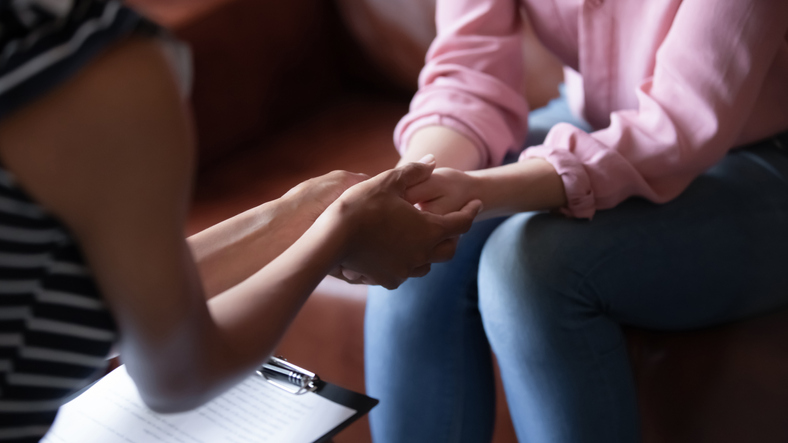Living with Chronic Pain
How to Support a Loved One in Recovery During the Holiday Season

Supporting someone in recovery can be challenging, especially during the holiday season. The holidays can be a particularly difficult time due to the stress or excitement of the season, which can be a trigger for substance users. Family members and friends may fear that their loved one will relapse and may not know how to support their sobriety. Tips to best support a loved one with addiction recovery during the holiday season are listed below.
Avoid alcohol
When inviting someone who is recovering from a substance use disorder to a holiday gathering, be sure to keep alcohol off the menu. Instead, offer various non-alcoholic options, such as non-alcoholic apple cider, hot cocoa, or sparkling juice. Providing options beyond just water may help them feel included.
Don’t comment on their plate
This is a good rule of thumb for any occasion, but it particularly applies to those in recovery. During withdrawals, they may be experiencing appetite changes. It is possible that the amount of food on their plate could be a sensitive subject; therefore, avoid discussions about portions and weight.
Leave conflict at the door
The holiday season can cause or reignite conflict. Parents may stay up all night to cook, a favorite football team may lose, politically charged comments may occur, questions may arise as to why someone isn’t married yet, or younger children may be rambunctious. Having additional people in the house or traveling to someone else’s house can also be stressful. These stressors can be triggers for substance use. To support a loved one who is recovering, it is best to ensure that any arguing, yelling, shouting, or stressful conversations are minimal.
Have a plan
Have a discussion with the loved one to develop a plan should things start to go awry. Perhaps a signal could be decided upon that indicates a need to use their substance. Have a quiet space (e.g., a spare bedroom, car, the porch, etc.) for quietness and distraction if a need occurs. Be supportive by talking with them and listening. If your loved one is in a different location than you, it may help to call or video chat.
Reach out
Reaching out to a loved one in recovery is important. If they have no one to spend a holiday with, consider inviting them. However, gatherings can be triggering, so don’t take it personally if they decline the invitation. Call, text, or video chat with them during the holidays. Let them know that they are cared for and loved.
Additional source: Verywell Mind


















